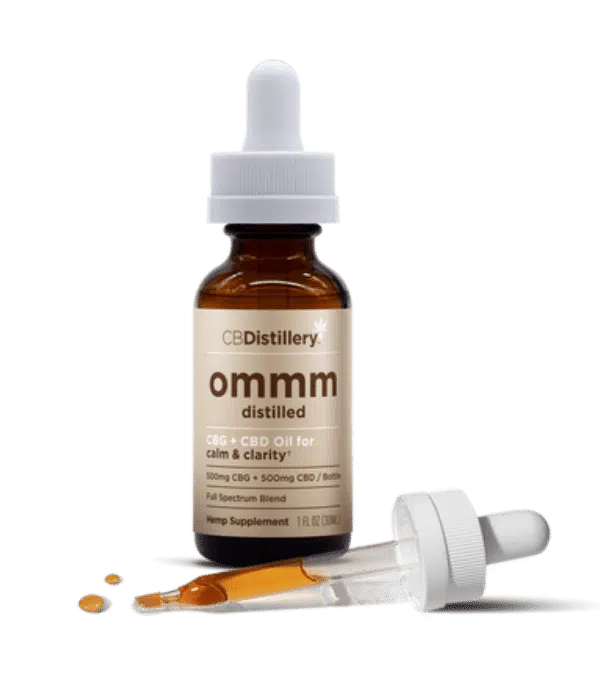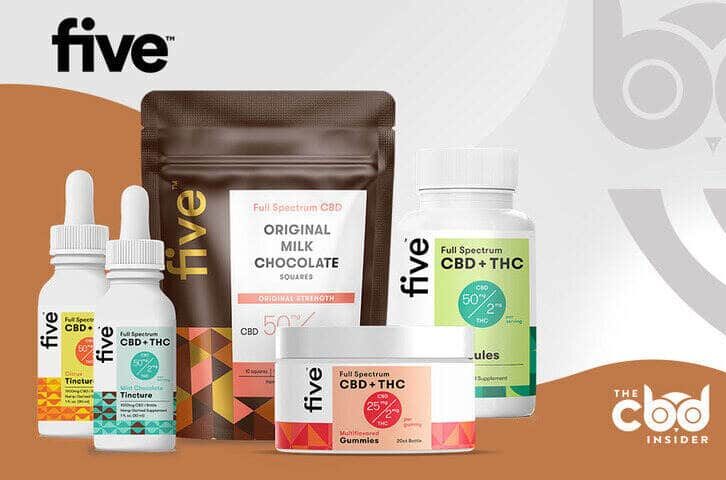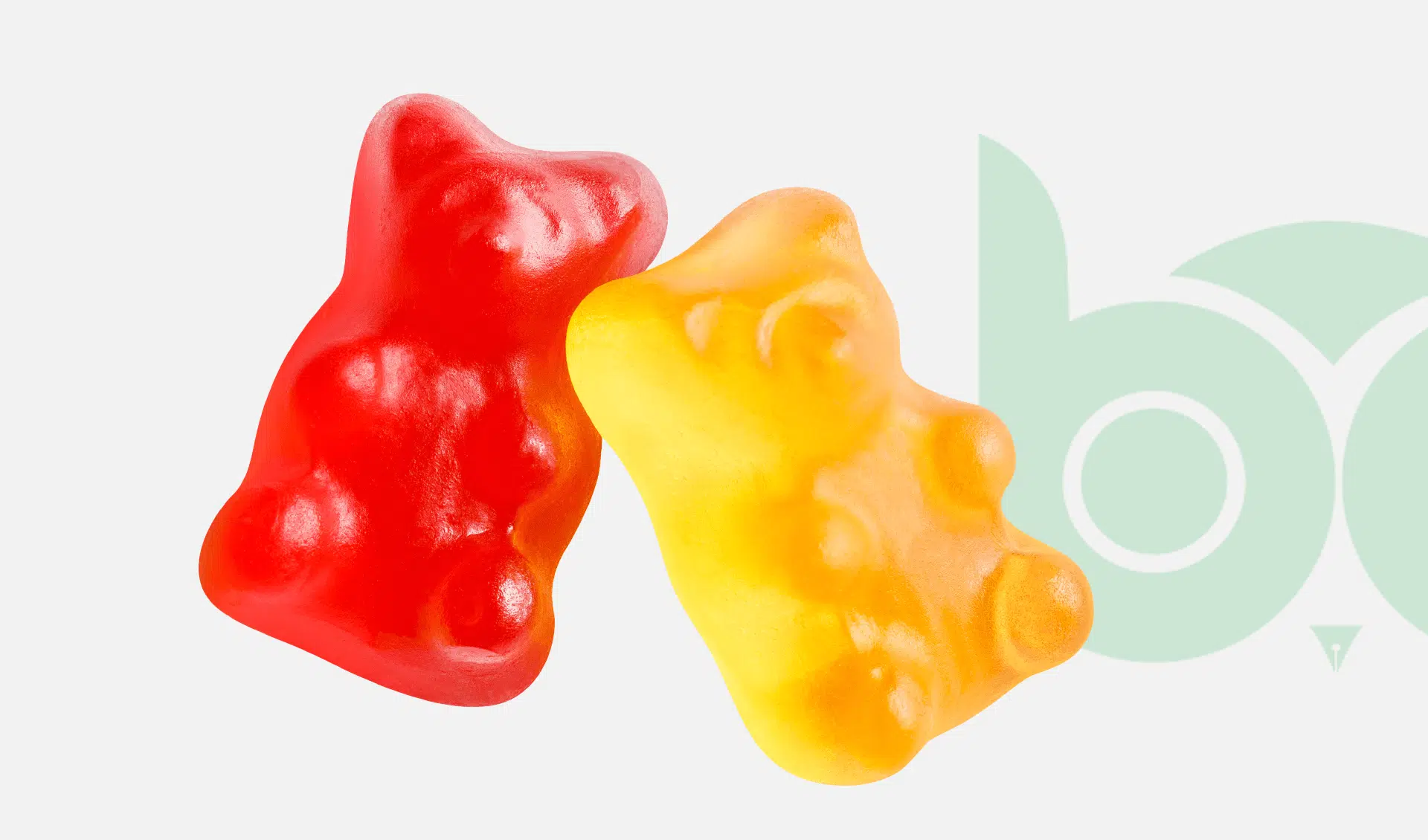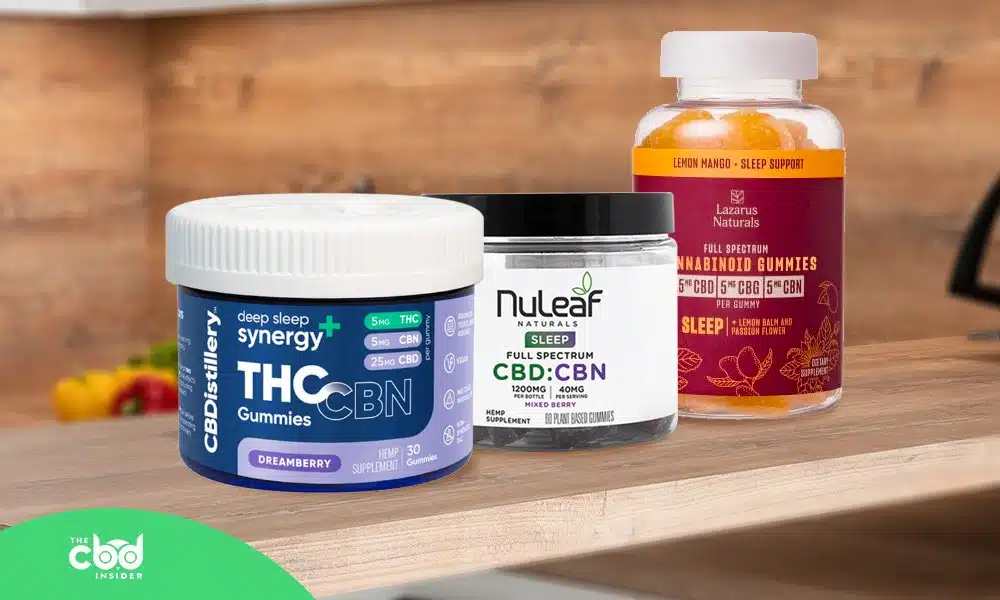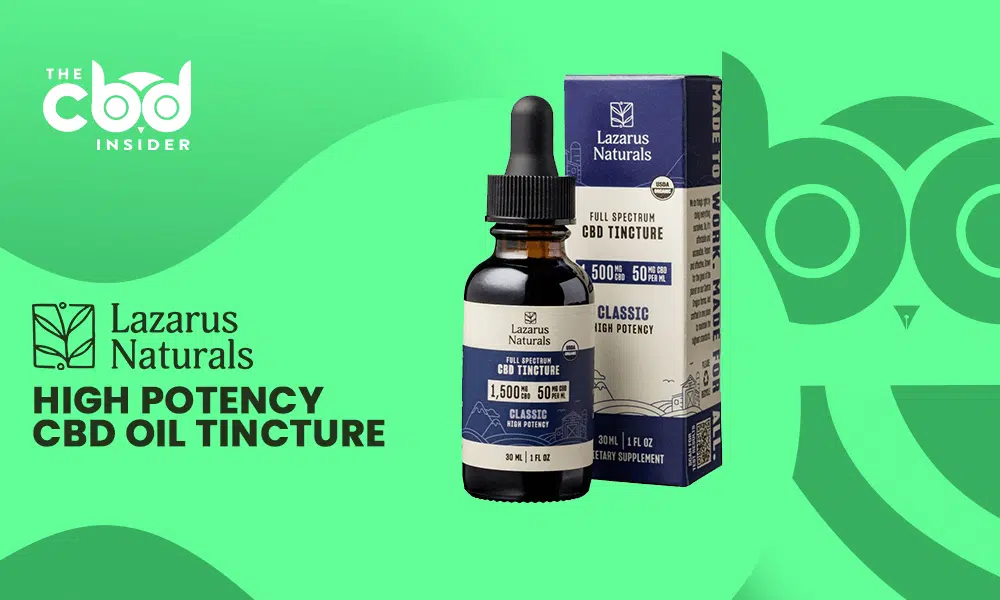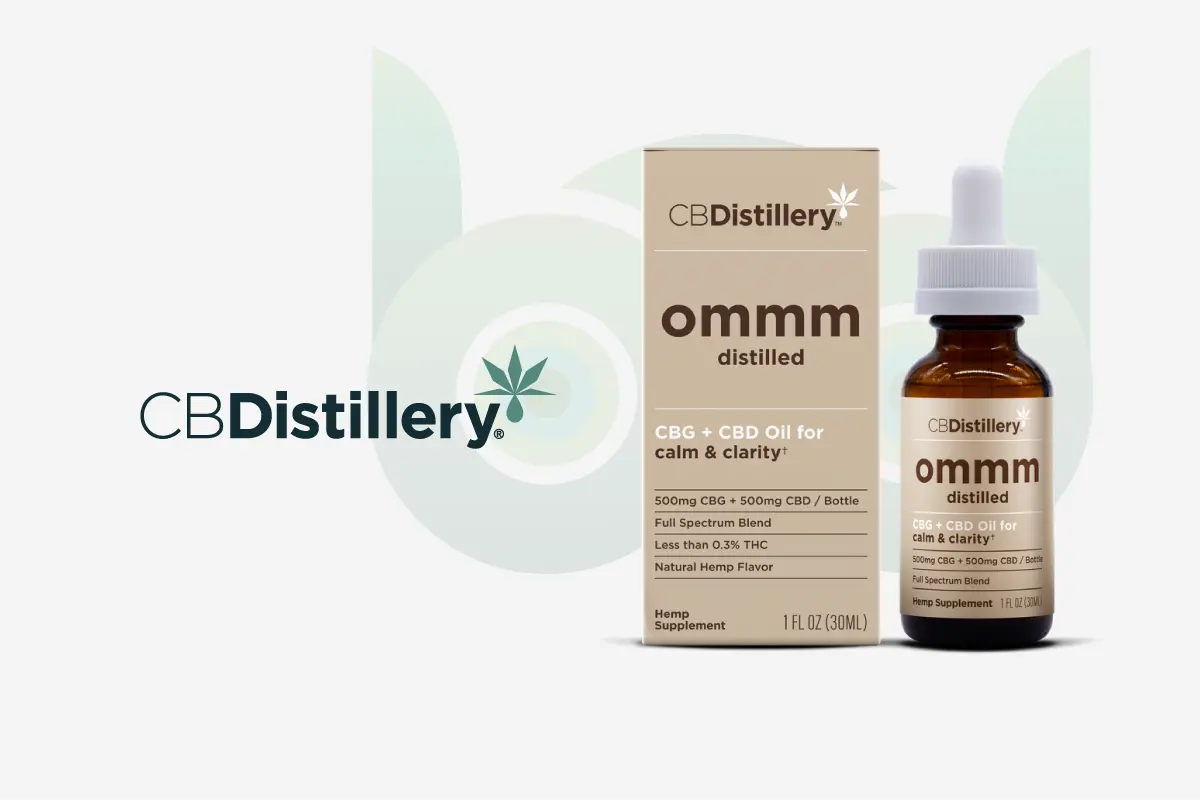-
- Market Research
- |
- CBD Near Me
- |
- Giveaways
- |
- Newsletter
- |
- Contact
- |
- Advertise
- |
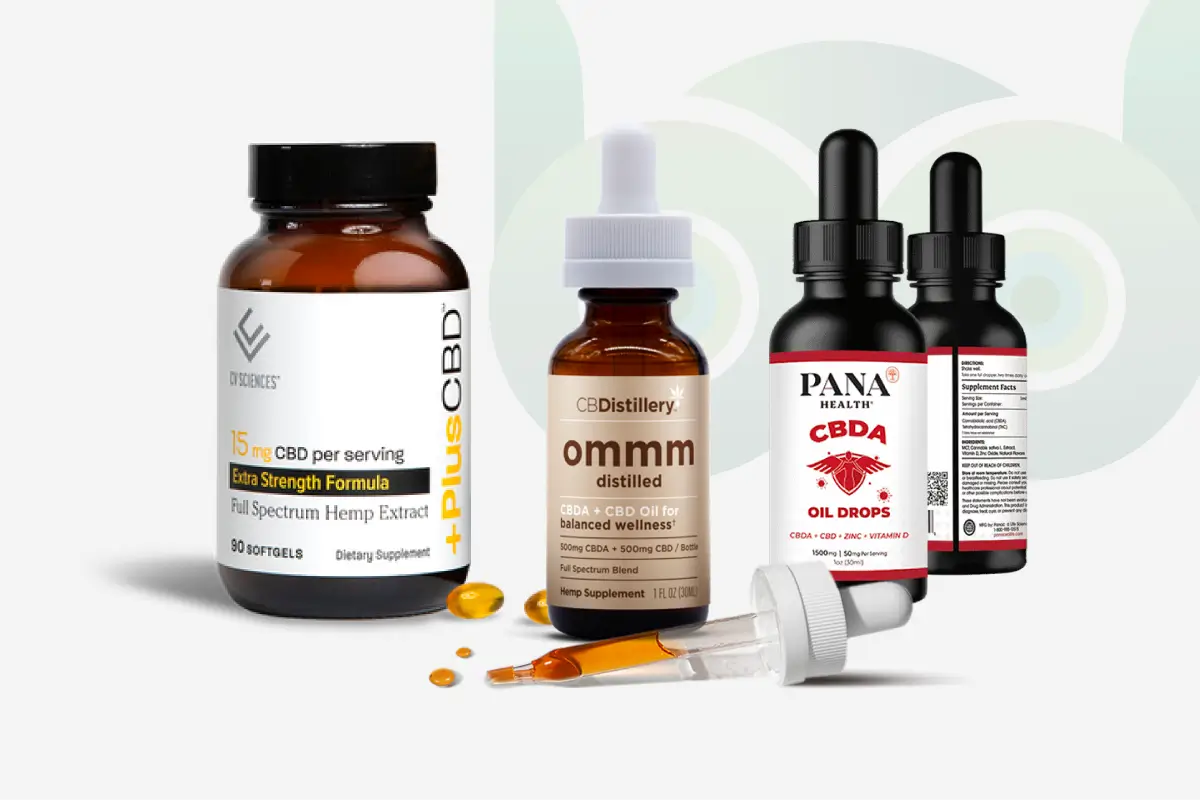
The post-farm-bill cannabinoid craze can still be overwhelming to those learning about CBD, CBDA, or CB-whatever for the first time.
Before we roll out our list of the best CBDA oils across the hemp industry, then, we’ve got a couple things to clear up—what even is CBD, or CBDA, for that matter?
Once you understand what CBDA does and how it differs from CBD, you can best take advantage of these industry-leading products for your own comfort and well-being.
CBDA vs CBD
Cannabidiol (CBD) and cannabidiolic acid (CBDA) are both highly abundant cannabinoids—a term denoting a 200-strong group of compounds native to hemp plants.
In simplest terms, CBDA is the natural precursor to CBD; the former eventually becomes the latter through natural processes, manufacturing, and/or when it is smoked/vaped.
As the “raw form” of CBD, CBDA is created from the interaction of cannabigerol acid (CBGa) and cannabidiolic acid synthase. Then, as the CBDA ages, it naturally “matures” into CBD.
FYI, many standard CBD tinctures—even if they don’t advertise CBDA content—contain some CBDA.
Functionally, CBDA and CBD overlap considerably, as one might expect, but often differ on potency across the various benefits.
For example, CBDA was found in this study by Canadian researchers to be a thousand times more potent than CBD in its interaction with a serotonin receptor that regulates nausea and anxiety.
Both CBD and CBDA were shown in this finding to inhibit a pro-inflammatory enzyme called “cyclooxygenase (COX-1/COX-2) enzyme activity,” which in turn provides relief from inflammation.
There are many more similarities and differences to explore between these two cannabinoids, but the general consensus is that CBDA is as potent as CBD or more so in some cases of nausea (especially chemo-related nausea), discomfort, and other issues.
Now on to our list of the best CBDA oil tinctures (and softgels) on the market.
Best Overall: CBDistillery Raw Synergy CBDA + CBD 1:1 Tincture
Featuring a much higher ratio of CBDA to CBD than most competitors, industry leader CBDistillery has thrown down the gauntlet with their Raw Synergy CBDA + CBD 1:1 Tincture.
Best Overall
CBDistillery CBD + CBDA 1:1 Tincture
Concentration
1000mg/30ml (33 mg of CBD/CBDA per ml)
Ingredients
Full Spectrum Hemp Extract (Aerial Parts), Fractionated Coconut Oil (MCT), Natural Terpenes
Each bottle of this full-spectrum tincture contains 500mg of CBDA and 500mg of CBD, along with the usual peppering of “minor” or “secondary” cannabinoids like CBG (cannabigerol), CBN (cannabinol), and of course, good old delta-9 THC (tetrahydrocannabinol).
There are no artificial preservatives, sweeteners, or added sugar of any kind. In fact, the “other ingredients” list only contains two items: fractionated coconut oil and natural terpenes.
In addition to the research already invested in making the product, CBDistillery is currently testing this tincture (and several others of theirs) in one of several pathfinder missions, as they’re calling them, using the Releaf App—which participants use to report their experiences with the product—as the data collection arm of the studies.
CBDistillery Raw Synergy takes our top spot for CBDA tinctures for the precedent-breaking CBD-to-CBDA ratio, CBDistillery’s reputation, and the above-average research investment.
Best Budget Pick: PlusCBD Extra Strength Softgels
Best CBD/CBDA Softgel
PlusCBD Extra Strength Softgels
Concentrations
- 1350mg (15mg x 90 capsules)
- 900mg (15mg x 60 capsules)
- 450mg (15mg x 30 capsules)
Ingredients
Hemp Extract (Aerial Plant Parts), Extra Virgin Olive Oil, Vegan Softgel (Modified Corn Starch, Glycerin, Carrageenan, Sorbitol, % Purified Water)
Each PlusCBD Extra Strength Softgel Capsule (made with full-spectrum hemp extract) contains 5 milligrams of CBD/CBDA, along with a selection of minor cannabinoids like cannabigerol, cannabinol, and so on to promote the entourage effect.
And though we’ve got nothing against medium-chain triglyceride oil, the use of extra-virgin olive oil as a carrier in this particular formulation is welcomed for all the health-affirming phenolic compounds it provides.
It also helps that PlusCBD is one of the most innovative, research-focused CBD brands in the business, as we detail in this review.
Most Potent CBD/CBDA Tincture: Bluebird Botanicals Complete CBD + CBDA Oil
Most Potent
Bluebird Botanicals Complete CBD + CBDA Oil
Concentrations
- 1500mg/60ml (25mg/serving)
- 750mg/30ml (25mg/serving)
- 600mg/60ml (10mg/serving)
Ingredients
Proprietary Blend: Organic fractionated coconut oil (MCT), Full-spectrum hemp extract (raw and decarboxylated) (Cannabis sativa) (aerial parts), Steam-distilled terpenes (from hemp (aerial parts).
It isn’t only the CBD/CBDA content we’re referencing when gauging the potency of Bluebird Botanicals Complete CBD + CBDA Oil, but rather, the whole package.
Here’s how this full-spectrum hemp extract stands out from the other guys:
- Proprietary blend of both raw and heated full-spectrum hemp
- Fortified with additional steam-distilled terpenes
- Organic carrier oil (MCT)
- Decent THC per serving (roughly 0.58mg)
It doesn’t get much cleaner than steam in the distillation department, and thanks to the THC and terpene boost, this tincture has a stronger argument for overall potency than many others on the market, CBDA or otherwise.
Each half-milliliter serving contains 10mg of CBD/CBDA, totaling 600mg per bottle.
Especially if you’re new to CBD products, we recommend starting out with a slightly smaller dose in the case of Bluebird Botanicals Complete CBD + CBDA Oil, given how broad the cannabinoid/terpene profile is.
Most Functional: Panacea Life Sciences CBDA Oil Drops
Panacea Life Sciences CBDA Drops
Concentration
1500mg CBD/CBDA: 50mg per 1 ml serving x 30 ml
Ingredients
Cannabidiolic acid (CBDA), Tetrahydrocannabinol (THC), MCT, Cannabis Sativa L extract, Vitamin D, Zinc Oxide, Natural Flavors
Known for their commitment to science-supported formulations (including conducting studies on their own products), Panacea Life Sciences offers one of the most potent CBDA/CBD tinctures around.
But it isn’t just the cannabinoid and terpene profile—50mg of CBDA and 16mg of CBD per serving—that places this tincture near the top of its category.
The addition of zinc and vitamin D support a large range of benefits as well, from immunity to energy and much more.
Anyone interested in digging into the science behind this product and Panacea’s other offerings can check out their Oregon State University and University of Chicago studies.
Best CBDA Softgel: PlusCBD Relief Softgel Capsules
PlusCBD Relief Softgels
Concentration
1800mg CBD/CBDA: 60 softgels x 30mg CBD/CBDA
900mg CBD/CBDA: 30 softgels x 30mg CBD/CBDA
Ingredients
Hemp-derived Extract (Aerial plant parts), Palmitoylethanolamide from Levagen, Extra-Virgin Olive Oil, Vegan Softgel (Modified Corn Starch, Carrageenan, Glycering, Sorbitol, Purified Water, & Chlorophyllin), Palmitoylethanolamide Powder (Poalmitoylethanolamide, Polyglycerol Polyricinoleate, Coconut Oil Fractionated, Lime Oil, Olive Oil, Lecithin, Tocopherol Acetate, Colloidal Silica), Candelilla Wax, Sunflower Lecithin
Finally, these doctor-formulated softgels by PlusCBD stand out from the herd with the help of a highly nutrient-dense hemp extract and a “ringer” we’ve never seen in hemp products before: Levagen®.
Starting with the basic specs, PlusCBD Relief Softgel Capsules contain 30mg of a 1:1 CBD and CBDA blend, and are available in either a 30-count or 60-count order.
Playfully dubbed by the brand as “the fullest spectrum hemp extract,” the extract used in PlusCBD contains 500 phytonutrients in addition to the cannabinoids, fatty acids, and terpenes.
Levagen® is made from palmitoylethanolamide (PEA), a fatty acid produced by the body to respond to physical injury and some of the effects of stress.
Finally, extra-virgin olive oil as a carrier oil kicks in an additional shot of plant-based nutrients (phenolic compounds) to up the ante further from a nutritional perspective.
Suffice it to say, these are among the most well-rounded CBD softgels we’ve encountered, CBDA or otherwise.
CBDA Oil FAQs
Is CBDA more effective than CBD?
It depends on the application and other contextual factors.
CBDA has been shown to interact with certain cellular receptors more effectively than CBD, but the inverse is also true, depending on which receptors/structures are involved.
In terms of general bioavailability, however, CBDA oil products seem to take a more definitive victory, outdoing the absorption potential of CBD by a significant margin in this Cornell University study and other contemporary findings.
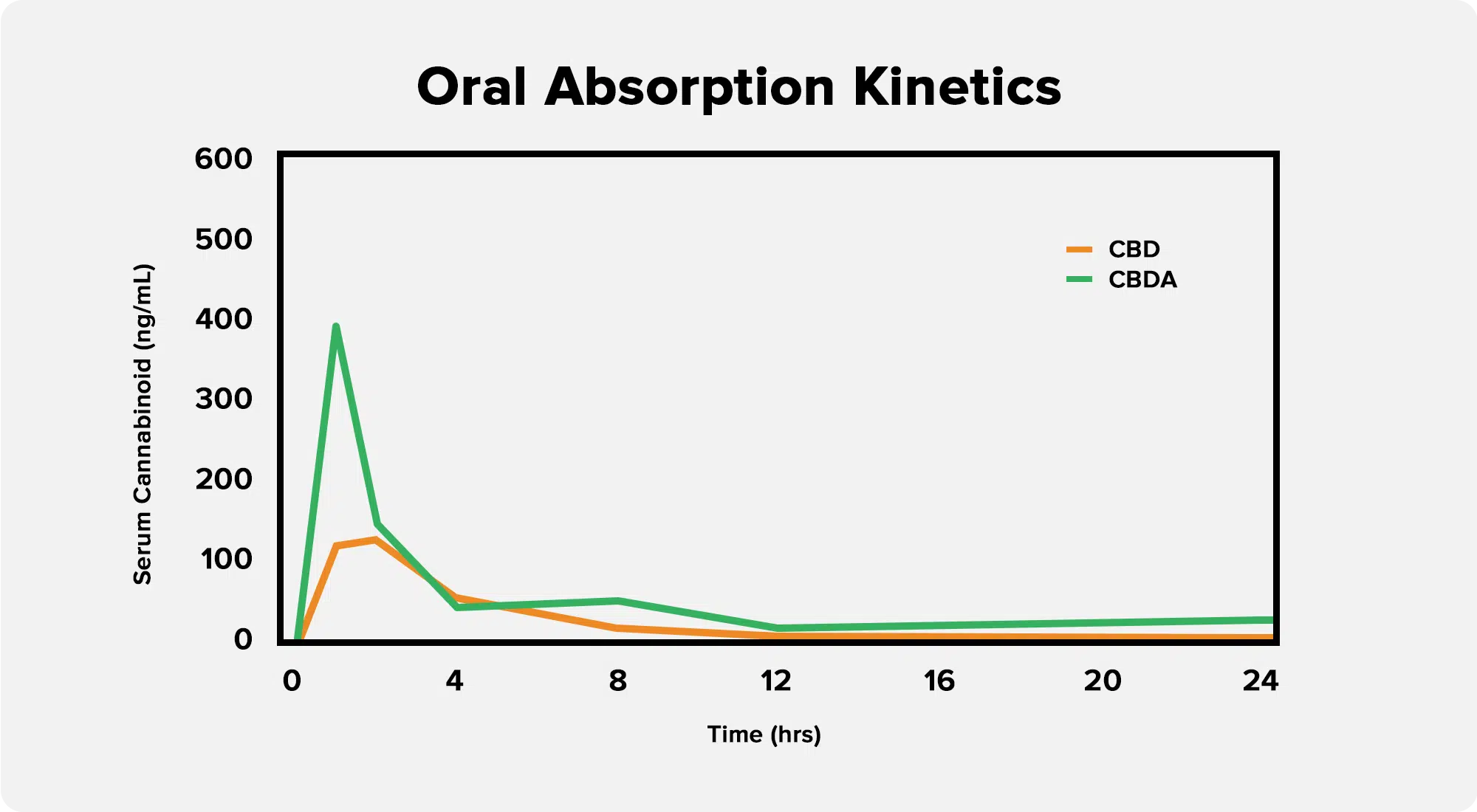
What is CBDA oil good for?
Due to the lack of FDA regulation for CBDA and most other hemp products (the drugs Epidiolex and Sativex are two notable exceptions), we have to rely on anecdotal accounts and independent research for this answer, which has blurred the lines of CBDA’s benefits a bit.
In general, the most confidently demonstrated benefits of CBDA overlap greatly with those of CBD, including relief from various forms of discomfort and stress.
How much CBDA oil should I take?
This is another issue muddied by a lack of formal regulation and the fact that CBD, CBDA, and other hemp-borne cannabinoids are administered in high and/or widely varying doses in studies (from as low as 20mg or so to more than 500mg a day).
These make for very vague dosage parameters, but starting small and working up based on results is a tried-and-true method that keeps safety at the forefront.
You can consult this CBD Dosage Chart to learn more.

How does CBDA make you feel?
While it’s true that CBDA (along with CBD) is a non-psychotropic compound, meaning it won’t produce a THC-like high or sense of euphoria, this doesn’t mean it can’t elicit more subtle changes in mood, cognition, and other high-level brain functions.
Depending on the potency of the CBDA, the presence of THC and/or other cannabinoids, and other factors (weight, medical history, concurrent medications, etc.), CBDA may make you feel calm, focused, and positive.
It may also decrease physical discomfort to a mild or moderate extent.
How long does CBDA stay in your system?
As much as we would like to avoid another “it depends” answer, well, it depends.
The kind of test you’re being administered (hair, saliva, blood, urine, etc.) has a drastic impact on how long the CBDA will be detectable (hair is by far the longest of these four).
Even with a specific kind of test in mind, however, it’s still difficult to answer this question, as your frequency of use, the form of CBDA you used (sublingual oil drops, softgels, gummies, vape, etc.), and other factors can affect how long CBDA is detectable in your system.
To provide a very broad range, CBDA may be detectable in your system for as long as 90 days after your previous use (hair test, heavy CBDA use) or as short as just a couple days (saliva test, infrequent use).
Though it refers to delta-8 THC as the detectable cannabinoid, this article provides more information on this issue of cannabinoid testing.
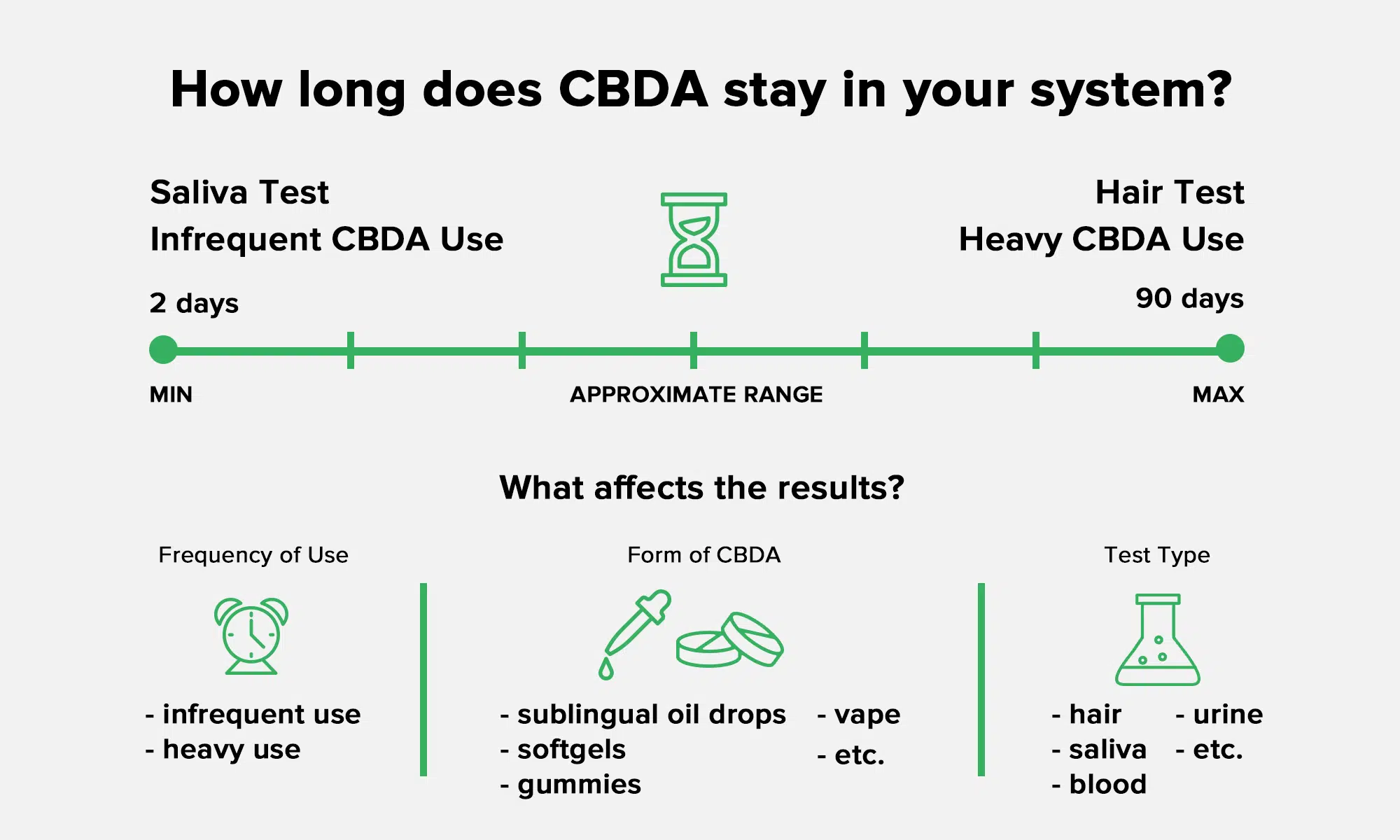
Does CBDA help with sleep?
In the research world, CBDA studies are still largely overshadowed by CBD studies, but there are several promising findings like this study from a neuroscience group in Yucatan, Mexico that show “prolonged wakefulness” as a result of CBDA administration in mice.
This isn’t to say that CBDA will keep you up unnaturally late, but conversely, that it regulates the sleep-wake cycle so that you can fall asleep and wake up at more consistent intervals.
What are the side effects of CBDA?
Once again, the safety profile of CBDA takes a back seat to CBD in the research world, so combining the two produces a more complete understanding of the adverse effects, which, according to this Thomas Jefferson University study, include organ weight elevation (rats), interference in sperm maturation (rats), tremors (rhesus monkeys), central nervous system inhibition (rhesus monkeys), and other effects listed in the data.
In humans, CBD has reportedly caused drowsiness, lightheadedness, dry mouth, diarrhea, and rarely, liver damage.
Key Takeaways
CBDA is the chemical precursor to CBD. It is generally absorbed more effectively than CBD, and has many of the same benefits as CBD, but with some exceptions.
As with any hemp/cannabinoid product, the best CBDA oils and softgels use cleanly extracted, third-party-tested, and preservative-free hemp/ingredients.
Most CBDA tinctures—like CBDistillery Raw Synergy—contain a ratio of CBDA-to-CBD.
Always monitor your dosage carefully, and adjust according to the results, consulting a healthcare professional if you have any issues or questions.


